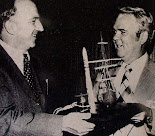Now the DEC has determined (in a Public Notice dated May 24) that the site “no longer presents a threat to public health and the environment” and proposes to reclassify the site from a Class 2 site (“Significant threat to the public health or environment - action required”) to a Class 4 site (“Site properly closed - requires continued management”) on the Registry of Inactive Hazardous Waste Disposal Sites. Public comments on this reclassification are being accepted until July 1, and we urge you to submit a comment.
Overview of the remedial program
Besides TCE, a powerful carcinogen, other “compounds of concern” at the site are 1,1,1-Trichloroethane (TCA), Freon 113, 1,2-Dichlorethene (1,2-DCE) and 1,1-Dichloroethane (1,1-DCA).
• Woodstock’s public water supply was extended to neighboring homes so that they wouldn’t have to use the TCE-contaminated water in their wells.
• Some contaminated soil was removed.
• Deed restrictions were put in place to restrict future use of groundwater at the site.
• Engineering controls were put in place to limit the spread of the contamination into groundwater and bedrock aquifers:
A system of 4 recovery wells continuously pumps contaminated water which would otherwise reach aquifers. An additional pair of pumps in wells on a neighboring property (across Route 375 at Fernwood Apartments) is designed to control another contaminant plume.
A separate system of 4 trenches collects contaminated groundwater. The water from the recovery wells and trenches – about 22,000 gallons per day of it – is pumped through a filter that removes the toxic compounds. In 2010, 22.82 pounds of TCE were removed in this way, representing an average TCE concentration of around 350 parts per billion. (The EPA’s recommended maximum level for TCE is 5 parts per billion.)
In addition, some two dozen monitoring wells are checked monthly, quarterly, or semi-annually for leakage of contaminants into the earth’s water system.
Our comments
In our opinion, the site still represents a significant threat to public health and the environment for the following reasons:
• The recovery wells and groundwater trenches rely on an active system of pumps – the pumps are on continuously. If and when they stop working the poisons will make their own way into the environment. The catastrophe at Fukushima reminds us that active safety systems are inherently unreliable. Disruption of electricity supply, and failure of electrical or mechanical components, can and does happen in unpredictable ways. Just in 2010, according to the engineer’s report, the pump in recovery well 6(4) failed, a meter in recovery well 9 jammed, and an unnamed “mechanical issue” affected the sumps in Trenches 1A, 1B and 3.
• Large quantities of contaminated soil remain on the site. The cost of removing all of it would have been prohibitive. The Final Engineer’s Report states that “A total of up to 150,000 cubic yards of soil appeared likely to exceed soil cleanup objectives for the site.”
• The geology of the site and the flow of water – to 2 separate streams east and west of the site, and underground – are complex and unpredictable. Monitoring well 12B continues to show high contaminant levels. Unexplained spikes in contaminant levels have been occurring in recovery well 10. While the regular monitoring schedule will hopefully identify new problems as they develop, it cannot eliminate the threat of an unexpected incident spreading contamination to bedrock aquifers.
In sum, while the engineering systems are doing the job they were designed to do, we cannot say that there is no threat to health or the environment. The threat remains. We can manage it, but the danger of significant health and environmental impacts is only mitigated, not removed. While the contamination remains, it would be false – and could lead to unwarranted complacency – to state, by reclassifying the site, that there is no longer a threat.
Address Public Comments about the Rotron-Woodstock site to:
Mr. William Bennett
NYSDEC
625 Broadway
Albany, NY 12233-7014
Phone: 1-866-520-2334
wbbennet@gw.dec.state.ny.us












No comments:
Post a Comment